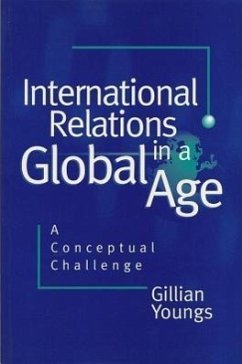This book investigates the ways in which state-centred approaches to international relations have limited our understanding of global, political, economic and cultural processes. By assessing a wide range of such state-centred work, Youngs identifies the challenges we must address to grasp the complexity of the contemporary world. The author combines insights from a variety of critical approaches, including gender analysis and post-structuralism. The result is a distinctive outlook on the struggle which faces those who wish to break the bonds of state-centrism. This book re-examines the links between politics, economics and culture, and suggests new ways of understanding them in the context of recent work on globalization. Gillian Youngs makes vital connections between the concerns of those studying international relations and international political economy, and of those working on globalization in a wide range of disciplines. This volume establishes a critical basis for thinking comprehensively about global relations from a multidisciplinary perspective. It will be of particular interest to students and lecturers in international relations, international/global economy, gender studies, international communications, development studies, social theory and political geography.
Hinweis: Dieser Artikel kann nur an eine deutsche Lieferadresse ausgeliefert werden.
Hinweis: Dieser Artikel kann nur an eine deutsche Lieferadresse ausgeliefert werden.








